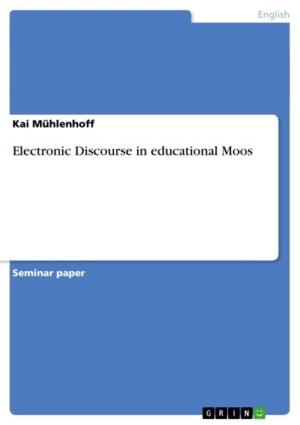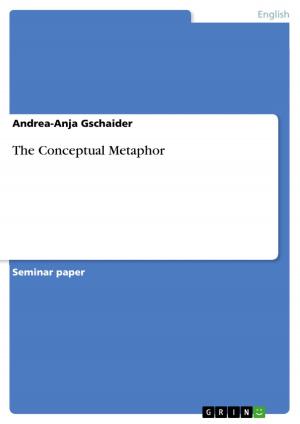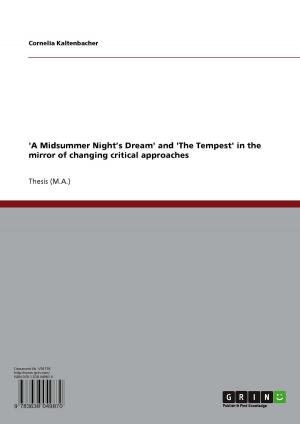Benjamin Franklin in his Autobiography and in Edmund S. Morgan's Biography Benjamin Franklin
Fiction & Literature, Literary Theory & Criticism, British| Author: | Moritz Oehl | ISBN: | 9783638336956 |
| Publisher: | GRIN Publishing | Publication: | January 10, 2005 |
| Imprint: | GRIN Publishing | Language: | English |
| Author: | Moritz Oehl |
| ISBN: | 9783638336956 |
| Publisher: | GRIN Publishing |
| Publication: | January 10, 2005 |
| Imprint: | GRIN Publishing |
| Language: | English |
Essay from the year 2002 in the subject English Language and Literature Studies - Literature, grade: 2,0, Sewanee the University of the South, course: History 201: History of the US, 2 entries in the bibliography, language: English, abstract: Benjamin Franklin was the first American hero. He was essential in formulating America's cause and his role in the peace negotiations with England made him an idol for generations. In his Autobiography the reader can follow the course of his life until his 30th birthday. Although he does not give any accounts on his role in achieving American Independence, his work delivers a good impression on his character. Nevertheless, to understand Franklin more thoroughly it is essential to consider a modern biography about him. In comparison to the Autobiography which lays stress on his attitude and principles towards life, Edmund S. Morgan's work Benjamin Franklin estimates his achievements for America by using these principles as an explanation for his success. When comparing Franklin's own story about his life with any other biography, we have to take into account whom he addresses with his writing. The first part of the Autobiography is dedicated to his son William and is written while the old man is on a political mission in England in 17711. Unlike Morgan's Benjamin Franklin, published in 2002 and written for a broad audience, Franklin did not explicitly address the public with the first part of his work. Even though the Autobiography has by today been published and distributed all over the world, it is crucial to consider that its initial purpose was only to inform his son.
Essay from the year 2002 in the subject English Language and Literature Studies - Literature, grade: 2,0, Sewanee the University of the South, course: History 201: History of the US, 2 entries in the bibliography, language: English, abstract: Benjamin Franklin was the first American hero. He was essential in formulating America's cause and his role in the peace negotiations with England made him an idol for generations. In his Autobiography the reader can follow the course of his life until his 30th birthday. Although he does not give any accounts on his role in achieving American Independence, his work delivers a good impression on his character. Nevertheless, to understand Franklin more thoroughly it is essential to consider a modern biography about him. In comparison to the Autobiography which lays stress on his attitude and principles towards life, Edmund S. Morgan's work Benjamin Franklin estimates his achievements for America by using these principles as an explanation for his success. When comparing Franklin's own story about his life with any other biography, we have to take into account whom he addresses with his writing. The first part of the Autobiography is dedicated to his son William and is written while the old man is on a political mission in England in 17711. Unlike Morgan's Benjamin Franklin, published in 2002 and written for a broad audience, Franklin did not explicitly address the public with the first part of his work. Even though the Autobiography has by today been published and distributed all over the world, it is crucial to consider that its initial purpose was only to inform his son.















